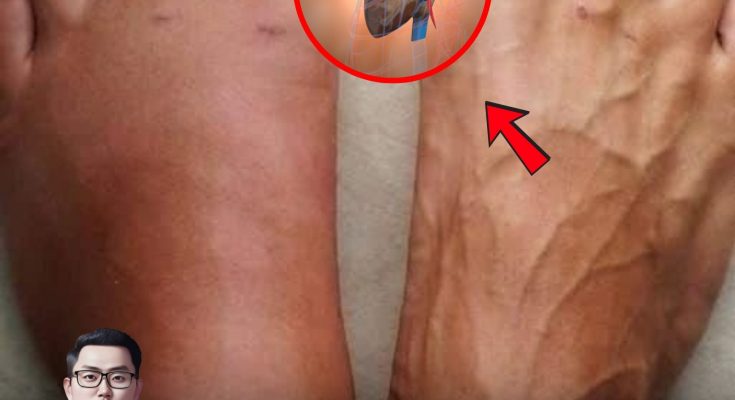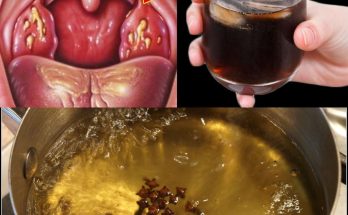The stressful way of life and the junk food we keep eating is a great contributor for this illness becoming so common and so dangerous over the last years.
Leading a healthy lifestyle and trying to decrease the levels of stress in your life can help protect you from heart failure, but another thing that can be very useful, even lifesaving, is knowing the symptoms of heart failure a month before it happens.
These are the symptoms that you might have a heart attack in a month. Make sure you always treat these as red flags.
1. Swollen Feet
If you have congestive heart failure, one or both of your heart’s lower chambers lose their ability to pump blood effectively. As a result, blood can back up in your legs, ankles and feet, causing edema.
2. Fatigue
When the arteries become narrow your heart receives a lot less blood than it is used to.
This makes the heart work a whole lot harder than it normally would have to, leaving you feeling overly tired and drowsy just about all of the time.
3. Shortness of breath
When your heart is getting less blood this means it your lungs are not going to be able to get as much oxygen to the lungs as you normally would.
The two systems depend on one another so without one you can’t have the other. If you have been having trouble breathing it is best to consult a doctor as soon as possible, this could mean it is getting close to time for your attack.
4. Weakness
When your body becomes weak, all of a sudden it is because the arteries becoming more narrow are not allowing blood circulation properly.
Your muscles aren’t getting what they need, and this could cause you to fall even for what may seem like at first no reason so be especially careful.
5. Dizziness and Cold Sweats
The poor circulations is also causing the blood flow to your brain to be restricted. This is very life threatening. This will at first cause dizziness and clamminess. You should not ignore this.
6. Chest Pressure
If you are having onset symptoms of a heart attack chances are you have been experiencing discomfort in your chest, whether it’s minor pain or built-up pressure.
This will constantly increase until the attack itself happens.
7. Flu or Cold Symptoms
If you feel as if you are having flu symptoms out of nowhere this could be because the attack itself is about to happen within the near future.
Many people feel they have developed a cold just days before their attacks.
How to handle this:
If you or someone you know is experiencing these symptoms, please see a doctor as soon as possible.
The best way to prevent a heart attack is by noticing the symptoms early on.
Mastruz: The Natural Super Herb That Can Transform Your Health

Gynecological cancers commonly affecting women include ovarian cancer, cervical cancer, endometrial cancer, vaginal cancer, and vulvar cancer. Each type has its own warning signs, such as abnormal vaginal bleeding, foul-smelling discharge, prolonged fatigue, and unexplained weight loss.
 If you experience these 3 types of pain, consult a doctor as soon as possible for early detection:
If you experience these 3 types of pain, consult a doctor as soon as possible for early detection:
 Abdominal Pain – A Sign of Ovarian Cancer
Abdominal Pain – A Sign of Ovarian Cancer
Persistent, dull, or sharp pain in the lower abdomen or pelvic region could be an early warning sign of ovarian cancer. This pain may spread to the hips, back, shoulders, or legs, and is often accompanied by:


 Pain During Intercourse – A Warning for Cervical Cancer
Pain During Intercourse – A Warning for Cervical Cancer
Pain that occurs at the vaginal entrance or deep inside during intercourse could be an indication of cervical cancer. Additional symptoms include:




 Persistent Lower Back Pain – A Sign of Advanced Cancer
Persistent Lower Back Pain – A Sign of Advanced Cancer
Lower back pain that lasts for weeks and does not respond to medication may indicate that cancer cells have spread to the pelvic region. Warning signs include:






